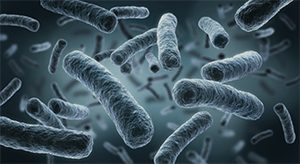Antibiotics and Bacteria: the War is Declared
What is antibiotic resistance and what it threatens each of us
Forecasts have become a reality
Ten years ago, the resistance of bacteria to antibiotics belonged to the category of forecasts. But already in 2014, who calls the resistance of bacteria to antibacterial drugs a real danger that lies in wait for residents of all countries and regions. What’s the meaning of that? Any one of us may face a disease, which will be powerless to all existing drugs. It can be an infection after a cut, cystitis, angina – everything we used to cope with with antibiotics.
Already today, people are dying from infections that used to be easily treated with antimicrobials. Not so long ago, the press reported that the cause of death was an American infection resistant to 26 antibiotics.
Why does resistance to bacteria occur?
The widespread spread of bacteria that are resistant to antibiotics, and the consolidation of this property provoked people, that is, we are with you.
 The constant use of antibiotics leads to the fact that bacteria are always faced with them and “learn” to survive in a hostile environment. Bacteria divide with great speed, several tens of generations change in a day. They evolyutsioniruet literally before our eyes, transmitting to the offspring the characteristics that help them to maintain the population. When we too quickly stop taking antibiotics (immediately after the disappearance of the symptoms of the disease), then in the body there are a few weakened bacteria that still survived and kept information about this enemy. The “knowledge” they pass on to offspring and to other bacteria. As a result, the bacteria will have time to “prepare” for the next meeting with this substance. The more antibiotics we use, the more” prepared ” the bacteria become.
The constant use of antibiotics leads to the fact that bacteria are always faced with them and “learn” to survive in a hostile environment. Bacteria divide with great speed, several tens of generations change in a day. They evolyutsioniruet literally before our eyes, transmitting to the offspring the characteristics that help them to maintain the population. When we too quickly stop taking antibiotics (immediately after the disappearance of the symptoms of the disease), then in the body there are a few weakened bacteria that still survived and kept information about this enemy. The “knowledge” they pass on to offspring and to other bacteria. As a result, the bacteria will have time to “prepare” for the next meeting with this substance. The more antibiotics we use, the more” prepared ” the bacteria become.
Today bacteria “invented” several ways of protection against antibiotics. Some bacteria break down antibiotic molecules. Others have a protective shell that does not pass the antibiotic inside the cell. Some types of bacteria change their own “physiology” in such a way that the antibiotic ceases to be a poison for them.
Where’s the exit?
In fact, humanity never gives up. Today, there are several ways to counter the threat of superinfection resistant to all antibiotics. Scientists continue to look for new substances that will be effective in the fight against pathogenic bacteria. These studies never stop, so that humanity has an antibiotic for extreme cases.
The second way is to reduce the use of antibiotics. Each of us can contribute to this struggle. First of all, you should refuse to prescribe antibiotics to yourself, especially when you have a cold. Do not take antibiotics “just in case”, even if you are sure that you have correctly diagnosed yourself.
But if you feel that the body can not cope, then go to the doctor, and do not self-medicate. Take antibiotics only as directed by a specialist and in strict accordance with his recommendations. Even if you no longer feel sick – you should bring the course to the end.
Another important step that is available to everyone is competent prevention. You can avoid taking antibiotics if you “don’t let” bacteria into your body, especially during the period when there are especially many of them in the ambient air. Oddly enough, to cope with the bacteria in the air will help the essential oils of some plants: eucalyptus, juniper, mint, Caapucu. You can even use ready-made compositions of such oils (for example, “Breathe oil”). It is important that the bacteria do not have time to adapt to essential oils, so you can not be afraid of the development of resistance and use them for a long time. Of course, adherence to basic rules of personal hygiene, especially after contact with patients or visiting public places, also reduces the risk of bacterial infection in your body.
Remember that the future of humanity depends on each person. Including you. Take care of yourself and your health!